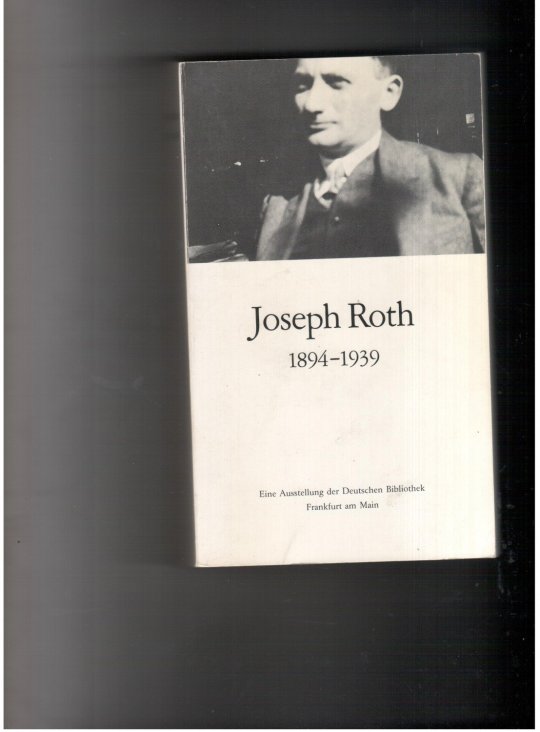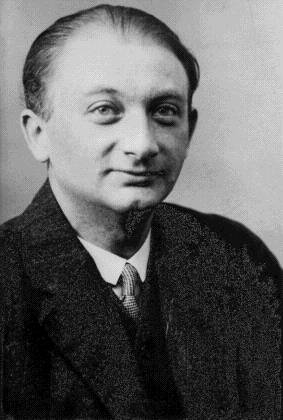#joseph roth
Text

Un beau matin (2022) by Mia Hansen-Løve
Book title
Brief an den Vater (1952) by Franz Kafka
Radetzkymarsch (1932) by Joseph Roth
Der Mann ohne Eigenschaften (1930) by Robert Musil
Hyperion oder der Eremit in Griechenland (1797) by Friedrich Hölderlin
Reigen (1903) / Liebelei (1895) by Arthur Schnitzler
Immanuel Kant (1978) by Thomas Bernhard
Stücke 2 (1998) by Thomas Bernhard
Korrektur (1975) by Thomas Bernhard
Der Kulturer (1962) by Thomas Bernhard
Gedichte by Friedrich Hölderlin
Leben und Werk by Johann Wolfgang von Goethe
#austrian literature#german poetry#german literature#leben und werk#johann wolfgang von goethe#gedichte#friedrich holderlin#der kulturer#thomas bernhard#korrektur#stucke 2#immanuel kant#reigen liebelei#arthur schnitzler#Hyperion oder der Eremit in Griechenland#Der Mann ohne Eigenschaften#robert musil#Radetzkymarsch#joseph roth#Brief an den Vater#franz kafka#books in movies#un beau matin#mia hansen løve
35 notes
·
View notes
Text
Joseph Roth was simply that bitch. He just knew. On 30 January 1933 when Hitler became chancellor, he left Berlin for Paris on the same day and three weeks later wrote a letter to the Austrian writer Stefan Zweig: “Quite apart from our personal situations — our literary and material existence has been wrecked — we are headed for a new war. Do not deceive yourself. Hell reigns.”
#BANGER LINE AFTER BANGER LINE!! god said read Radetzky March right fucking now!!!!!#Joseph Roth#oughhhhh Radetzky March is so good
8 notes
·
View notes
Text

Nice
(Joseph Roth in a letter to his cousin, 1918)
27 notes
·
View notes
Quote
Je savais depuis toujours que m’apitoyer sur moi-même est aussi condamnable que m’apitoyer sur les autres.
Joseph Roth, Poèmes des livres disparus • Jeunesse
#Joseph Roth#Poèmes des livres disparus#livre#livres#book#books#citation#citations#citation française#citation en français#littérature#littérature autrichienne#literature#quote#quotes
48 notes
·
View notes
Quote
Back then, before the Great War, when the incidents reported on these pages took place, it was not yet a matter of indifference whether a person lived or died. If a life was snuffed out from the host of the living, another life did not instantly replace it and make people forget the deceased. Instead, a gap remained where he had been, and both the near and distant witnesses of his demise fell silent whenever they saw this gap. If a fire devoured a house in a row of houses in a street, the charred site remained empty for a long time. For the bricklayers worked slowly and leisurely, and when the closest neighbors as well as casual passerby looked at the empty lot, they remembered the shape and the walls of the vanished house. That was how things were back then. Anything that grew took its time growing, and anything that perished took a long time to be forgotten. But everything that had once existed left its traces, and people lived on in memories just as they now live on in the ability to forget quickly and emphatically.
Joseph Roth, The Radetzky March
#joseph roth#what I'm reading#this is another great book for if you want to feel insane about world war i
60 notes
·
View notes
Note
Any suggestions for books that have a cozy fall feel to them? I'm trying to read my way to cooler weather :P
I sympathize with this endeavor! I have a double confession to make, though. 1) I am never sure what people on Tumblr mean when they say "cozy." 2) Even though I am fairly certain what "cozy" means when applied to subgenres of light fiction, this is not what I seek when I turn to seasonal fall reading. What I am usually looking for in autumnal fiction is some combination of:
death and decay are inevitable; they can also be beautiful
autumn is a time simultaneously of hope and of reckoning with that hope's disappointment
the academic calendar and academic communities (see also above, tbh)
With, um, all that in mind... some recommendations.
Gaudy Night, Dorothy L. Sayers. "Let us go now, and have the truth at all hazards" and also "epic actions are all fought by the rearguard" and "if it ever occurs to people to value the honor of the mind equally with the honor of the body, we shall get a social revolution of a quite unparalleled sort."
Brideshead Revisited, Evelyn Waugh (for its gorgeous descriptions of all seasons, and also everything else)
Embers, Sándor Márai (the end of a life and the end of an empire... but maybe not the end of love)
On the Edge of Reason, Miroslav Krleža (I'm pretty sure this opens in September; it is beautiful and poignant and savage)
Lolly Willowes, Sylvia Townsend Warner (this actually might come quite close to what you are looking for; this is a lovely and tender and melancholy and hopeful book)
A Small Town in Germany, John Le Carré (small town, large stakes, and Le Carré's customary insight and humor)
Radetzkymarsch, Joseph Roth (this is another end-of-empire one)
Georgics and Eclogues, Virgil (his birthday is in October! lots of lovely harvest poetry and also poetry about destructive love.)
Summer in the Country, Edith Templeton (summer must end, empire must end, deceptions... may or may not)
The Last September, Elizabeth Bowen (the last because in the autumn of 1920, in County Cork, old certainties and old loyalties are about to go up in flames.)
The Salzburg Connection, Helen MacInnes (not only is this that too-rare thing, an espionage novel written by a woman, but the thing I remember best about it is the male protagonist's quotation of/meditation on Rilke's "Herbsttag.")
The Dig, John Preston (this takes place, of course, over a summer, from May to September. But this is 1939, so September is always, always on the horizon. I did not particularly like the beautiful film as an adaptation, but I want a motivational poster of Ralph Fiennes saying "We all fail! every day!")
I hope that at least some of these may be interesting! I also always think Ellis Peters does a lovely job of evoking seasons in her Cadfael novels, and you could do worse than going through and reading the autumnal ones.
#asks and answers#adultbooklr#book recommendations#autumn#gaudy night#brideshead revisited#embers#on the edge of reason#lolly willowes#a small town in germany#radetskymarsch#virgil#summer in the country#the last september#elizabeth bowen#edith templeton#joseph roth#john le carré#sylvia townsend warner#miroslav krleža#sándor márai#evelyn waugh#dorothy l. sayers#ellis peters#helen macinnes#john preston#the dig
129 notes
·
View notes
Text
Solo molto più tardi ho imparato che le parole sono più potenti delle azioni – e spesso rido quando sento l’amata frase: “Fatti e non parole!”. Quanto sono deboli i fatti! Una parola rimane, un fatto passa! Di un fatto può essere autore anche un cane, ma una parola può essere pronunciata soltanto da un uomo. Il fatto, l’azione, è solo un fantasma se lo si confronta con la realtà immateriale della parola. L’azione sta alla parola press’a poco come le ombre bidimensionali del cinema stanno all’uomo vivo tridimensionale, oppure, se preferite, come la fotografia all’originale.
Joseph Roth – Confessione di un assassino
Ph Christer Strömholm
4 notes
·
View notes
Text
Tu sei più bella nelle notti in cui tutto brucia.
6 notes
·
View notes
Text
Elogio di uno scrittore
Il 30 maggio del 1939 fu sepolto nel cimitero di Thiais a Parigi un uomo, il cui funerale era stato benedetto da un prete cattolico, benché egli non fosse mai stato battezzato. Era ebreo, ma i suoi amici ebrei rinunciarono a recitare il kaddish. Era probabilmente morto di delirium tremens, ma i medici diagnosticarono una sincope. Era cittadino della repubblica austriaca, ma si dichiarava suddito degli Asburgo.
Quest’uomo – uno dei massimi scrittori del XX secolo – si chiamava Joseph Roth. Aveva soltanto quarantacinque anni, ma pensava che la morte sarebbe giunta comunque troppo tardi. Non aveva – così diceva – nessuno alle spalle, né un popolo né uno stato. Solo la lingua in cui scriveva – ma nemmeno questo è sicuro, se qualcuno ha potuto sentire nel suo tedesco la voce dello yiddish e il respiro del russo. Eppure forse nessuno come lui aveva visto con tanta lucidità lo sfacelo del mondo che lo circondava né descritto con tanta inaudita vivezza e gioiosa precisione le strade, i caffè, gli alberghi delle città in cui gli era capitato di vivere. Forse nessuno era stato così insolentemente felice in tutto ciò che andava perdendo, che aveva già irrevocabilmente perduto.
Per questo nessuno scrittore del Novecento ci è come lui vicino. Anche noi non possiamo crederci cittadini dello stato in cui ci è toccato di vivere. Siamo stati battezzati, ma non apparteniamo in alcun modo alla chiesa. Come lui, non abbiamo più nulla alle spalle, non un popolo e tanto meno una nazione. Ma questo non ci toglie la capacità di essere felici e di provare a scrivere e a parlare lietamente in una lingua che ci rifiutiamo di identificare con l’insulso sproloquio che i media e le scuole non si stancano di propagare e avvilire. Senza credere in nessuno dei valori e delle leggi che ci sono imposti, abbiamo come lui conservata vergine e intatta la fede nell’erba, nel cielo stellato, nel silenzio e nella bellezza dei volti.
Giorgio Agamben
7 notes
·
View notes
Text
A man might die because he hadn't experienced anything, and had been just one person all his life.
Joseph Roth (in Right and Left)
3 notes
·
View notes
Text

Stefan Zweig und Joseph Roth, 1936
4 notes
·
View notes
Text
“We never see everything so clearly and coldly as when we foresee the imminence of the abyss and its darkness”
— Joseph Roth, Confession of a Murderer
3 notes
·
View notes
Quote
A welcome darkness came over her and she [slipped] into a soft, spread-out, inviting cloak of tender velvet.
Joseph Roth, “The Blind Mirror” from The Coral Merchant (trans. Ruth Martin)
24 notes
·
View notes
Text

Joseph Roth, September 2, 1894 – May 27, 1939.
12 notes
·
View notes
Quote
Si l’un chantait sa souffrance d’amour, je ne comprenais pas pourquoi il souffrait tant, mais je croyais normal de tant souffrir.
Joseph Roth, Poèmes des livres disparus • Jeunesse
#Joseph Roth#Poèmes des livres disparus#livre#livres#book#books#citation#citations#citation française#citation en français#littérature#littérature autrichienne#literature#quote#quotes
24 notes
·
View notes
Text


Plaque en hommage à : Joseph Roth
Type : Lieu de résidence
Adresse : 18 rue de Tournon, 75006 Paris, France
Date de pose :
Texte : Ici a résidé de 1937 à 1939 le célèbre écrivain autrichien Joseph Roth
Quelques précisions : Joseph Roth (1894-1939) est un écrivain austro-hongrois. Après une enfance quelque peu difficile (et sur laquelle les sources peuvent se contredire), il se passionne pour la littérature allemande et s'installe à Vienne. Effaré par le début de la Première Guerre mondiale, durant laquelle il s'engage malgré tout, il est très marqué par la fin de l'empire austro-hongrois, un thème qui apparaît fréquemment dans ses récits. Après la guerre, il entreprend une carrière de journaliste au sein de différents journaux allemands. Il quitte toutefois l'Allemagne en raison de la montée du nazisme (étant lui-même Juif, ses livres seront brûlés par les nazis) et s'exile à Paris. En dépit du succès de ses livres, il meurt appauvri et malade.
3 notes
·
View notes